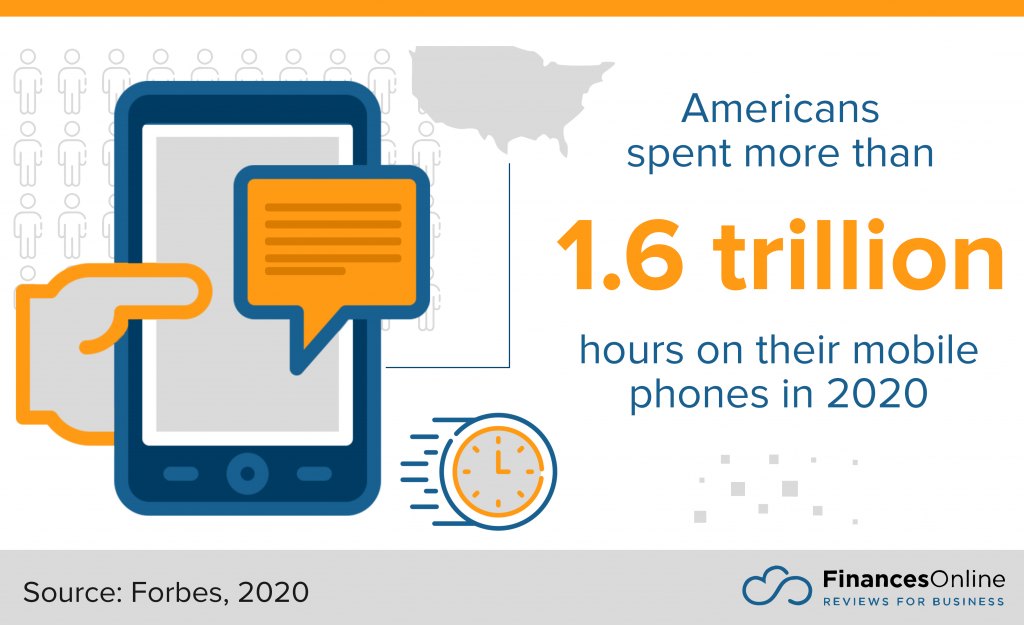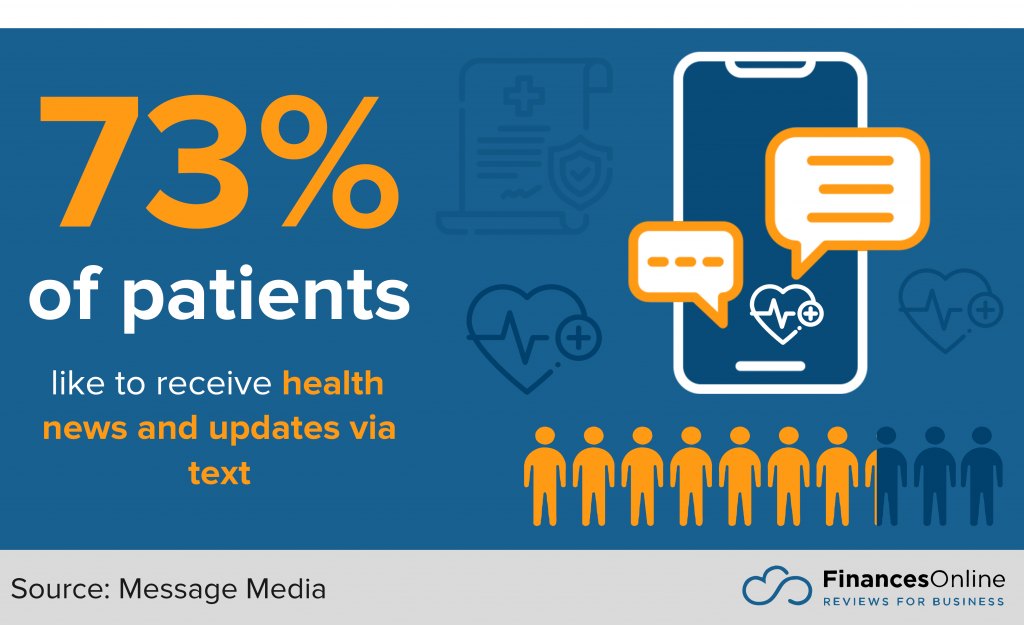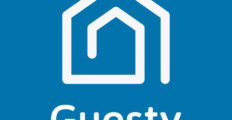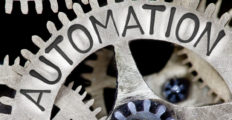The present model of time measurement goes way back to the time of the Sumerians, in 2000 BC, yet the first booked appointment was done even long before that time. The notion of appointment scheduling was founded on convenience, in which the customer agrees to the time, venue, and meeting agenda set by the service provider. Over the years, appointment scheduling largely catered to the advantage of the professional, like a doctor, lawyer, or accountant (TASBIA, n.d.). Notwithstanding, appointment scheduling via standard means will soon become a thing of the past.
What’s rather new is that the system is also now being implemented for the benefit of customers. Know how other businesses are keeping up with the trends by reading the current appointment scheduling software statistics in this article.

Appointment Scheduling Software Statistics Table of Contents
Appointment Scheduling Software Statistics Overview
Appointment scheduling tools refer to web-based, desktop, or mobile solutions that help organizations handle their appointments with their customers easier. Through these tools, customers can book or cancel their own appointments using any device, anytime and anywhere (ExpertBox, 2021).
- According to the most up-to-date appointment scheduling software statistics, North America had a 39% contribution to the appointment scheduling software growth (PR Newswire, 2021).
- Self-scheduling lessened the no-show percentage by 17% (The Becker).
- The appointment scheduling software market is predicted to increase by $633.47 million between 2021 and 2025 (PR Newswire, 2021).
Source: GetApp, 2021
What Appointment Scheduling Can Do for Your Business
From an ROI outlook, minimizing the cycle of your sales is the central function of appointment scheduling apps. As online appointment scheduling statistics show, they also lessen administrative works and make report monitoring more accurate for employees. On top of that, they aid in gaining and keeping customers and optimizing customer, employee, and appointment management. As a result, businesses can exert their extra time and money on more important matters.
- Businesses offering appointment scheduling options online observed a 24% increase in call volume (Healthgrades).
- A 30% to 45% revenue increase is highly possible with appointment scheduling software (Yolantis).
- Online appointment research showed that re-booking reminders result in a 30% growth in repeat appointments (Yocale, 2021).
Appointment Scheduling and the Customers Statistics
If a customer is scheduling an appointment via phone and you asked him or her to wait for a minute or more, appointment scheduling software statistics report that one would probably find another business to deal with. With the universality of online booking options in many services, customers are becoming more attuned to scheduling at their own choosing. The same report revealed that customers want such an option to be available to other industries as well (Hedges, 2021).
- Online scheduling leads to 26% more new customers (Yocale, 2021).
- Customers who schedule an appointment online average 2.6 services in six months (Yocale, 2021).
- Online scheduling is related to an average customer invoice amount of $125.30 (Yocale, 2021).
- 77% of customers will recommend a business after a positive customer experience (Sharpen).
- Only 20% of customers would schedule an appointment via phone (RevenueWell).
Their Main Pain Points
- 59% of customers are discontented with being put on hold and the disruptive office hours associated with phone bookings (GetApp, 2021).
- Being asked to wait on hold is a big waste of time for 42% of customers (GetApp, 2021).
- 17% of customers feel frustrated whenever they are asked to wait until a new slot for an appointment opens (GetApp, 2021).
- The ability to select a suitable time slot is a huge pain point for 20% of customers (GetApp, 2021).
What They Want
- Do people prefer to book online? Yes, as stated by 70% of them (RevenueWell).
- 94% of customers would be more likely to find a new business, especially if it has its own booking schedule website (GetApp, 2021).
- 26% of customers choose to schedule an appointment for the same or the next day (SolutionReach).
- 50% of customers choose to reschedule or cancel an appointment online (RevenueWell).
- Among 500 Americans, Millennials aged 18 to 34 like to get text reminders about appointments, deliveries, payments, and so on (OpenMarket).
- 78% of customers are more likely to buy from a business if they receive customized services (Forbes, 2021).

Appointment Scheduling in Health Care Statistics
Self-service options help many patients get access to quality health care. In many ways, health care is shaped by the digital systems within other markets.
Appointment scheduling software trims down usual obstacles, such as long waiting times, empowering patients to book their own services. Online scheduling for doctors also establishes engagement that has been proven to somehow make up for the shortcomings in health care.
- In 2020, health care providers spent $324.4. million on appointment scheduling. By 2027, they will spend as much as $690 million to further increase the patient scheduling market size (Market Data Forecast).
- 25% of customers say that they would prefer to book medical appointments online (GetApp, 2021).
- 20% to 30% of patients cancel or re-book their medical appointments (Well App, 2021).
- 35% of customers indicate that online appointment options are a deciding factor when picking a health care provider (Healthgrades).
- Patient scheduling statistics revealed that 59% to 70% of patients prefer to self-schedule (Jarvis Analytics, 2021).
- These days, 15% of all dental appointments are done online (Dental Economics, 2021).
- 70% of patients would prefer health care providers that email or text them for their preventive or follow-up care (Accenture).
- 51% of health care facilities are investing in patient experience (VMware and MIT, 2020).
- 50% of patients believe that a negative digital experience makes the entire medical interaction unfavorable (Accenture, 2020).
- 28% of patients have either transferred or stopped visiting a health care facility due to a bad online customer experience (Cedar, 2020).
- More than 95% of male patients who scheduled an online visit via Zocdoc rescheduled their visit with a similar field (Zocdoc, 2021).
- SonderMind garnered $150 million to grow its therapist network in all 50 states (eMarketer, 2021).
- 43% of patients search for health care professionals after business hours (Dental Economics, 2021).
- Physicians who offer online appointments alongside phone appointments were booked 24% more than those who offer phone appointments only (Dental Economics, 2021).
- 87% of potential new patients do not leave a message or book an appointment when reaching voicemail (CallTracker).
- 40% of all online medical appointments are for the same or the next day (Dental Economics, 2021).
- Cancellation of booked elective surgeries lead to a loss of $22.3 billion in profit (Penn LDI, 2021).
- After implementing a two-way appointment reminder scheme, Riverside Medical Clinic noted a 33% decline in no-shows. It also saw a 94.5% increase in booked appointments (Well App, 2021).
- The average patient visit makes $100 to $150 (Patientpop)
- The estimated yearly loss from missed medical appointments is $150 billion (Softermii, 2021).
- 91% of health care professionals use cloud-based software (Softermii, 2021).
- 52% of health care professionals use different tools for patient reminders (Softermii, 2021).
- Online appointment scheduling allows two extra patients to be seen every day (Deloitte).
- More than half of Millennials and GenXers would switch to a health care provider that offers online appointment scheduling (Kyruus).
- It takes less than a minute to book an appointment online. Meanwhile, it takes 8.1 minutes to do so via phone, considering that a staff member transfers calls 63% of the time (CalendarHero, 2021).

Most Popular Appointment Scheduling Software
- Square Appointments. An intuitive online appointment management software with an interactive calendar, embeddable booking widgets, and appointment history tracking. Read our Square Appointments review to see its complete feature set.
- Acuity Scheduling. A flexible appointment scheduling system that supports branded reminders, payment processing, and time zone adjustment. Learn more about the product in this Acuity Scheduling review.
- Calendly. A team scheduling and appointment management tool with calendar integration, reporting options, as well as custom notifications. View our Calendly review for more information.
- TeamUp. An appointment management system with self-service options, one-off scheduling, attendance tracking, as well as waitlisting. To learn what else this product has to offer, take a look at our TeamUp review.
- Checkfront. An online booking management solution offering inventory management, payment processing, and Facebook integration for a more streamlined operation. Check out this Checkfront review if you want more details about this product.
Appointment Scheduling in Banking Statistics
Every financial firm entertains a plethora of customers. However, things can get challenging when these customers arrive at a branch all at the same time.
Back then, banks dealt with such dilemmas by employing staff based on historical trends. But problems prevail, especially with each customer raising various needs and demanding for certain skill sets to cater to them.
With appointment scheduling, banks are sure of who to expect, for what service, and for how many minutes or hours customers will stay. They are also able to collect data about customer needs to improve their services.
- 8 out of 10 banks offered branch banking by online appointment prior to COVID-19 (CS3 Marketing, 2021).
- About 38% of branch appointments lead to newly-opened accounts (CS3 Marketing, 2021).
- More than 50% of the time, the customer’s banking needs can be catered to virtually (CS3 Marketing, 2021).
- In the latest online scheduling statistics, it was revealed that about 30% of banking appointments made by customers happened between 8:00 PM and 6:00 PM (CS3 Marketing, 2021).
Appointment Scheduling in Other Industries Statistics
Manual appointment scheduling is both a time-consuming and error-prone task. If not careful, businesses can lose profits from double-bookings, resulting in negative customer feedback and bad SEO performance. That’s why many small- to medium-sized businesses now resort to using appointment scheduling platforms.
- Almost 50% of all appointments in the spa and beauty salon industry were done online when businesses were closed (Phorest).
- 83% of customers book travel and restaurant reservations online (Healthgrades).
- 48% of customers are willing to plan, research, and schedule their travel to another destination via their mobile phones (Condor Ferries).
- No-shows cost small- to medium-sized businesses an average of $26,000 annually in lost revenue (10to8).
Source: GetApp, 2021
Voice Recognition Software: The Future of Appointment Scheduling
Voice technology refers to the use of speech recognition and voice synthesis systems. This kind of technology makes, takes, conveys, receives, and/or analyzes human voice. Besides being a user-friendly and convenient tool for most customers, it is also a helpful guide for many persons with disabilities.
- 1 in 4 American adults has a smart speaker, such as Amazon Echo or Google Home (MarTech, 2020).
- Voice technology has been proven to improve productivity by 25% (Mheda).
- 76% of voice users believe that voice recognition is safer to use than fingerprints (HSBC)
- The accuracy rate of voice technology could be from 90% to 99% (Voice Biometrics, 2021).
- 41% of voice users worry about passive listening, a situation where a tool records your voice with you unaware (Microsoft).
- The voice technology industry is predicted to reach $26.8 billion by 2025 (Globe Newswire).
- 93% of smartphones will likely be integrated with voice technologies by 2023 (eMarketer, 2021)
How can small businesses maximize appointment scheduling software?
For small businesses, appointment scheduling software is a powerful tool to enhance efficiency, boost customer satisfaction, and reduce costs. However, making the most of these platforms requires a strategic approach tailored to small business needs.
- Automate Customer Reminders: Sending automated reminders can drastically reduce no-shows, saving small businesses valuable time and money. Reminders through email, SMS, or app notifications help ensure customers remember their appointments, minimizing missed bookings.
- Offer Online Payment Options: Integrating payment options within scheduling software allows clients to pay in advance, reducing cancellations and securing revenue. Prepayments or deposits encourage customer commitment, particularly for high-demand services.
- Collect Customer Data for Personalization: Use appointment software to gather customer preferences and history. This data enables businesses to personalize their services, such as offering tailored promotions or personalized appointment reminders, which can improve customer loyalty.
- Enable Self-Scheduling on Multiple Platforms: Small businesses benefit from embedding self-scheduling links on their websites, social media pages, and Google My Business listings. This multi-channel approach makes booking more accessible and convenient, attracting customers who prefer online scheduling.
- Use Analytics for Insights: Many appointment scheduling tools offer analytics on customer trends, peak booking times, and service popularity. Analyzing these metrics helps small businesses optimize staffing, adjust hours, and focus on high-demand services.
- Encourage Repeat Bookings: Implement follow-up prompts post-appointment to encourage repeat bookings. A simple reminder to rebook or a small discount for return visits can keep customers engaged and improve business continuity.
Valuing Time: Where the Priority of the Appointment Economy Lies
As we all attempt to regain normalcy in our lives, the digitization of the majority of businesses is paving the road to the creation of the appointment economy. This seemingly new economy is seen as a way to improve customer engagement and experiences across industries. And this can only mean one thing: that time of both the customers and business owners must be valued at all times.
References:
- 10to8. (2021, June 30). Why Voice Technology is the Future of Online Appointment Scheduling. 10to8.
- Ahmed, E. (2021, August 25). WebMD launches appointment booking, challenging competitors like Zocdoc. eMarketer.
- Dorfman, G. (2021, July 3). Why online scheduling should be the new normal. Dental Economics.
- Ellgen, P. (2021, February 10). 8 Ways to Improve Your Patient Scheduling in 2021. Well App.
- ExpertBox. (2021, January 26). Appointment Scheduling Software: What It Is, Why You Need It, Key Features Overview, and Benefits It May Bring. ExpertBox.
- Givone, R. (2021, August 17). Banking By Appointment In The Time of Delta. CS3 Marketing.
- Hedges, L. (2021, April 8). Online Booking Options Can Get You More Clients. GetApp.
- Perry, M. (n.d.). Ease and Access: Why the Patient Scheduling Experience Needs an Upgrade. Healthtech Magazine.
- Softermii. (2021, September 22). Doctor Appointment Booking App Development: Features & Stack. Softermii.
- Solis, B. (2021, March 6). The Rise Of The Appointment Economy: The Last Mile Of Customer Engagement Will Be Scheduled, Optimized And Personalized. Forbes.
- TASBIA. (n.d.). A Short History of Appointment Scheduling. TASBIA.
- Technavio. (2021, March 24). Appointment Scheduling Software Market to grow by USD 633.47 million during 2021-2025. PR Newswire.
- Teckchandani, V. (2021, December 2). 6 Ways Online Scheduling Can Boost Profits and Productivity. CalendarHero.
- Wilson, K. (2021, January 19). How Online Booking Platforms Tie into Current Banking Industry Trends. Coconut Software.
- Yocale. (2021, September 20). 2021 Online Booking Stats (+ Original Research). Yocale.






















Leave a comment!